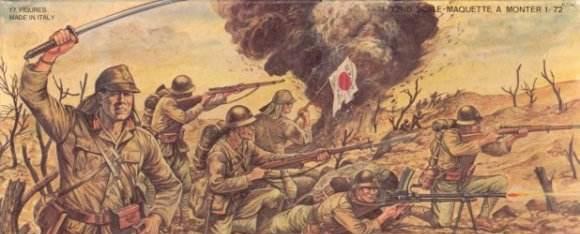On September 1, 1939, Germany attacked Poland and World War II broke out. This war is the largest, most destructive, most property damaged and most human casualties in human history. Other aspects aside, the casualties alone are shocking, with more than 90 million casualties in World War II. The most numerous of these were the War of Resistance Against Japanese Aggression on the mainland and the Great Patriotic War of the Soviet Union. Soviet casualties as a proportion of the population were much worse than on the mainland. Let's look at the specific data.

The mainland had more than 400 million people at that time, with more than 35 million casualties, and the casualty ratio was less than one-tenth. The Soviet Union had a population of less than 200 million, and the number of casualties was more than 27 million, a proportion of one in eight. It can be said that the Soviet-German war was very tragic. However, many people can't figure out that the Military Discipline in Germany during World War II was much better than that of Japan, and there were almost no large-scale massacres. Why the Soviet Union had such a large number of casualties, let's look at the general reasons.
The first is the terrain. The European part of the Soviet Union was mainly plain, and there was no danger to defend. And as long as the population and economy of the SOVIET Union are in Europe. When the Soviet-German war broke out, the European territory of the Soviet Union was the main battlefield of the war, and since there was no danger to defend, the German army could be said to be advancing rapidly. Due to the large population here, there are also many casualties.
The second is related to German tactics. We all know that Germany's main tactic during World War II was blitzkrieg. This tactic is mainly the use of tanks, aircraft and other mechanized troops to cooperate, the number of troops is very large, in a short period of time rapid advance. For this tactic, whether it is frontal resistance or the Soviet Union's grand strategy of depth, it requires a large number of troops to fight against the other side. And in confrontation, the proportion of Internet access will be very high. After all, this tactic is very advanced. We can see only by looking at the casualties of the Soviet army, which killed nearly 10 million people and captured about 5 million. It can be seen that this tactic causes great losses to personnel.
The third is that Germany will carry out organized human slaughter. Germany was already ostracizing the Jews before World War II. Jews were then imprisoned in concentration camps for massacres. Germany did this not only on its own soil, but also in the occupied territories after the start of World War II. More than six million Jews were slaughtered by the Germans. Many disabled people were also massacred by the Germans. That is to say, although the German soldiers were well disciplined, they did not directly carry out massacres or other atrocities. But organized german massacres of people caused more casualties.
The last and most important point is the problem of ammunition consumption on both sides during the war. The Great Patriotic War added up to less than four years, which was not as long as the continental War of Resistance against Japan, but the consumption of ammunition was very large. Let's look at the comparison of ammunition consumption on the battlefields of the Soviet Union and the mainland.
In the eight years of the War of Resistance Against Japanese Aggression, China consumed 1,709,920 rounds of ammunition, 3,558,800 rounds of mountain howitzers, 6,047,760 mortar shells, and 23,598,800 grenade grenade grenades. As for the ammunition consumption of other aircraft and warships, the continent is negligible, because the mainland has almost no air force and navy. The Soviet Union consumed a total of 17 billion rounds of ammunition, an average of 4.4 billion rounds per year. We are familiar with the Battle of nori threshold, where the Soviets consumed 31,000 tons of ammunition. During the Great Counteroffensive at the Battle of Stalingrad, the Soviets consumed 80,000 tons of ammunition. Simply put, all the ammunition consumed during the War of Resistance Against Japanese Aggression on the mainland was only enough for the Soviet Union to fight two battles. The ammunition consumption of the USSR was very large.
Ammunition consumption can explain one thing, that is, on the Soviet-German battlefield, the war was very fierce and very cruel. When more ammunition is consumed, it means that the artillery fire is very fierce. Human flesh and blood simply could not withstand these cannon fires, so casualties were inevitable.
It was precisely for these reasons that the Soviet Union suffered such a large number of casualties during the Soviet-German war. It can be said that the Soviet Union really paid a huge price in order to win this war. So much so that in the decades after the end of World War II, the Soviet population did not fully recover.